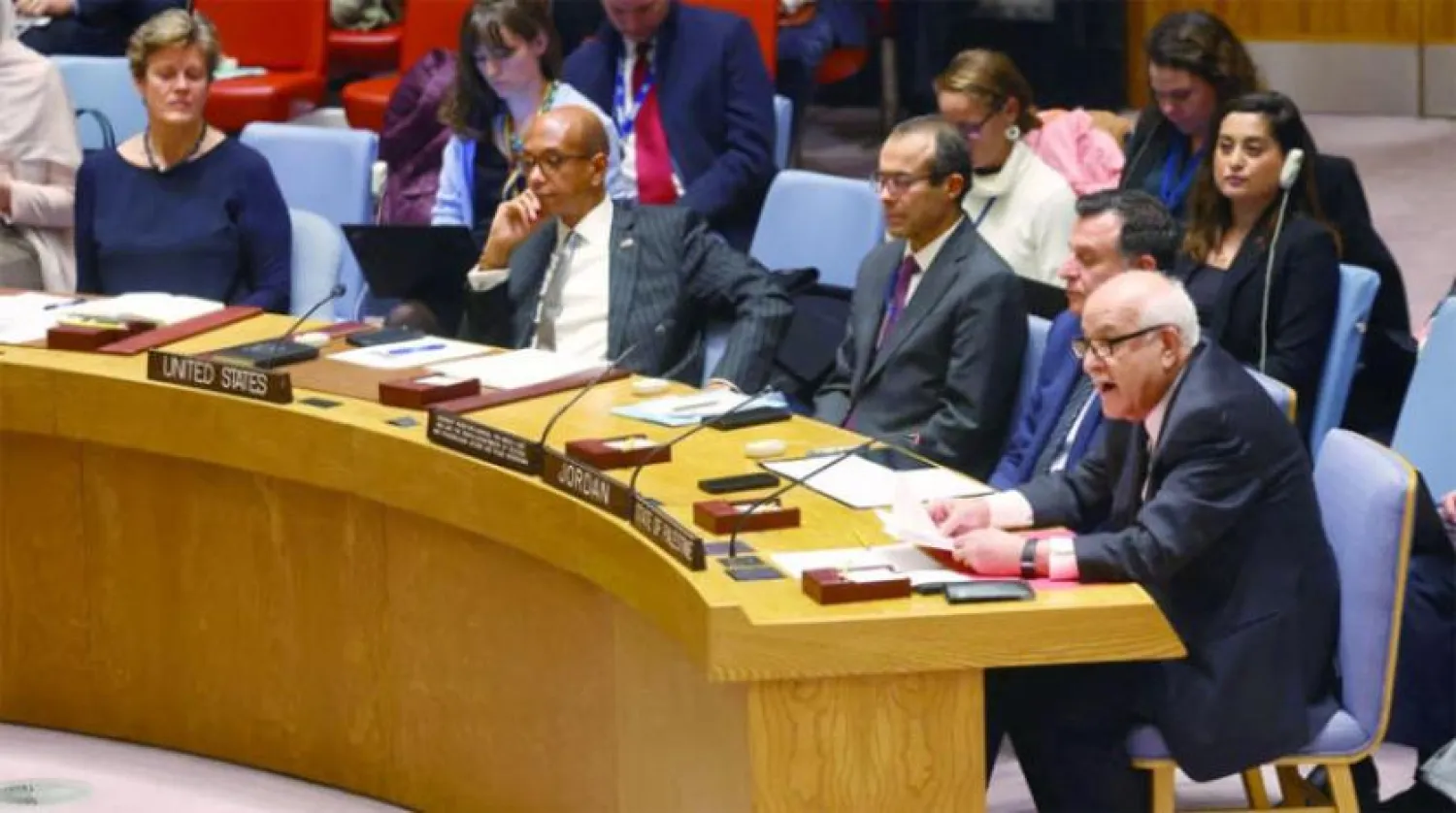Israel faced widespread criticism, including from the United States and Russia, during an emergency session of the UN Security Council to discuss the visit of the Israeli Minister of National Security, Itamar Ben-Gvir, to al-Aqsa Mosque in Jerusalem.
The international community warned that the new development could lead to a new uprising against occupation in the Palestinian territories.
The session was held at the request of the UAE and China, followed by another bid from France and Malta.
The UN Assistant Secretary-General for Political and Peacebuilding Affairs, Khaled Khayari, briefed the Council on Ben-Gvir's visit.
Khayari indicated that while the visit was not accompanied or followed by violence, it is seen as "particularly inflammatory given Ben Gvir's past advocacy for changes to the status quo."
He noted that the visit drew widespread condemnation from regional countries and the international community and was seen as "a provocation that risked sparking further bloodshed."
The official stated that UN efforts to de-escalate the situation would continue and that all parties must refrain from steps that could escalate tensions.
"The situation at Jerusalem's Holy Sites is deeply fragile, and any incident or tension there can spill over and cause violence throughout the Occupied Palestinian Territory, in Israel and elsewhere in the region," warned Khayari.
He reiterated the "Secretary-General's call for all parties to refrain from steps that could escalate tensions in and around the Holy Sites, and for all to uphold the status quo, in line with the special role of the Hashemite Kingdom of Jordan."
- Al-Aqsa is a red line
The permanent Palestinian representative to the United Nations, Riyad Mansour, confirmed that the Israeli minister "stormed" into the third holiest Muslim place, describing Ben-Gvir as an "extremist minister in an extremist state" who was convicted of incitement and known for his "racist views."
Mansour recalled that the Israeli opposition leader Ariel Sharon's visit in 2000 led to violent clashes that erupted during the second Palestinian intifada.
He urged the Security Council and all countries to prevent this from happening and adhere to international law, warning that "if they do not do so, our Palestinian people will."
He told the council that the Palestinians had "run out of patience," adding that Israel's insistence would lead to an intifada.
"Which red line should Israel cross so that the Security Council finally says: enough! and acts accordingly? When will you act?" said Mansour.
Israeli delegate Gilad Erdan, who visited Haram al-Sharif, as Minister of Public Security in 2017, criticized the Security Council for holding the emergency meeting on Ben-Gvir's 13-minute visit, considering it a "Jewish right."
Erdan called the meeting "insulting" and "pathetic," adding that the council should instead meet about the war in Ukraine or Iran killing protesters.
"Israel has not harmed the status quo and has no plans to do so," Erdan said.
"The only side that is changing the status quo is the Palestinian Authority. Why? Because by turning the site into a battleground … the Palestinian Authority is making it clear that not only is Jewish prayer intolerable on the Haram al-Sharif, but so is any Jewish presence."
"This is pure anti-Semitism," he added.
Meanwhile, the Jordanian ambassador, Mahmoud Hmoud, rejected Erdan's accusations, stressing that Jordan never occupied the West Bank and East Jerusalem.
When Ben-Gvir visited Haram al-Sharif on Tuesday, he described it as "the most important place for the Jewish people" and decried what he called "racist discrimination" against Jewish visits to the site.
Ben-Gvir said in a video clip taken during the visit: "The Israeli government won't surrender to a murderous organization, to a vile terrorist organization."
UAE deputy ambassador, Mohammed Abushahab, said that Ben-Gvir's provocative moves indicated a lack of commitment to the existing historical and legal situation in the holy places in Jerusalem.
Abushahab warned that the minister's action further destabilizes the fragile situation in the Palestinian territories, moves the region further away from a path to peace, and threatens to escalate current tensions "and contribute to fueling and stoking extremism and hatred in the region."
Moreover, the Chinese ambassador, Zhang Jun, expressed his regret over the recent events and called on all parties concerned to exercise restraint to prevent the escalation of tensions in East Jerusalem.
"Israel, in particular, should stop provocation and unilateral actions vis-a-vis the historical status quo of the holy sites," said Zhang.
Russia's UN ambassador Vassily Nebenzia expressed "serious concern" at Ben-Gvir's visit and said he hoped the new Israeli Cabinet "would not take the path of escalation" and "create irreversible realities on the ground."
Furthermore, the US deputy ambassador, Robert Wood, stressed President Joe Biden's support for the "historical status quo,", especially in the Haram al-Sharif.
Wood said the US noted Prime Minister Benjamin Netanyahu's platform calling for preserving the status quo, adding: "We expect the government of Israel to follow through on that commitment."
The White House had warned Israel that any unilateral action in the holy sites in East Jerusalem was unacceptable.









